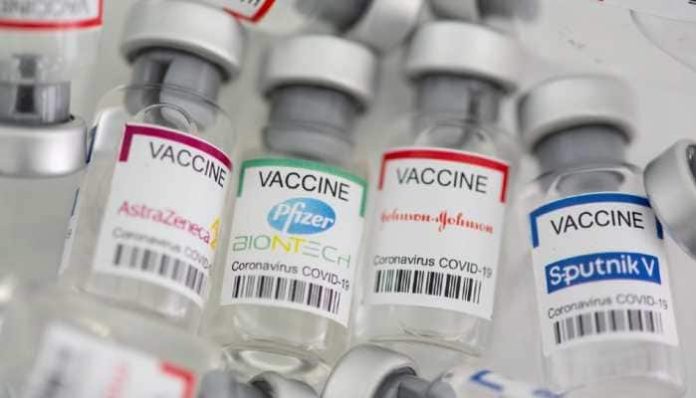The Pfizer/BioNTech and Moderna COVID-19 vaccines appear to protect against COVID variants B.1.617 and B.1.618 first identified in India, researchers have reported in a new pre-print paper, which has not yet been peer-reviewed, CNN reported.Based on lab experiments involving cell cultures, the B.1.617 and B.1.618 variants seem to be partially resistant to the antibodies elicited by vaccination, according to the pre-print paper posted to the online server biorxiv.org on Sunday (May 16).”Thus, there is a good reason to believe that vaccinated individuals will remain protected against the B.1.617 and B.1.618 variants,” the researchers from New York University wrote in their paper. But more research is needed to determine just how effective the Pfizer/BioNTech and Moderna vaccines are against those variants in the real world.Moreover, the World Health Organization (WHO) has classified the coronavirus variant first found in India as a “variant of global concern”.It said studies show the B.1.617 mutation spreads more easily than other variants and requires further study, CNN reported.The researchers found some decreases in neutralization, but overall, antibodies from people who had been vaccinated appeared to work “well above” the serum from people who had recovered from COVID-19 caused by earlier versions of the virus.The researchers also examined how Regeneron`s monoclonal antibody cocktail therapy, called REGN-COV2, worked against the lentiviruses with B.1.617 and B.1.618 mutations — and both appeared to be “partially resistant” to the therapy.”Our results lend confidence that current vaccines will provide protection against variants identified to date. However, the results do not preclude the possibility that variants that are more resistant to current vaccines will emerge,” the researchers wrote. The findings highlight the importance of wide-spread adoption of vaccination which will both protect individuals from disease, decrease virus spread and slow the emergence of novel variants.”The lab-based study was carried out by the NYU Grossman School of Medicine and NYU Langone Center.
ABOUT US
Sach News® - raising the voice of people of Jammu Kashmir since 1940. We are Publishing House of Daily Sach (Urdu Daily). Sach News, is one of the Oldest News Group of India having its office in Jammu Kashmir, Delhi. Reach us for Latest news on politics, sports, crime, education, real estate, business entertainment and much more. We provide you with the latest breaking news and videos straight from the ground zero.
Contact us: [email protected]
© Sach News Network 2011-2024 | Maintained by Sach Info Tech


